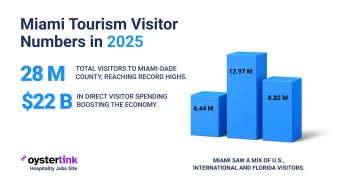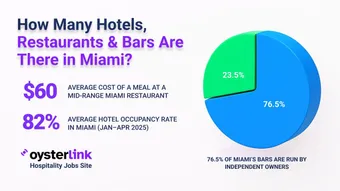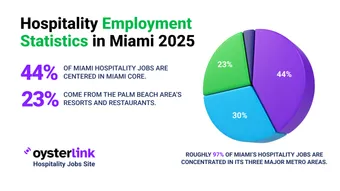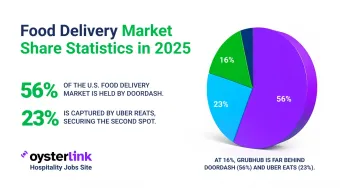How to Become a Prep Cook Without Experience: Key Takeaways
- Developing fundamental culinary skills like knife proficiency and food safety is crucial for prep cooks.
- Gaining practical experience through volunteering, internships, or entry-level kitchen roles helps build real-world knowledge.
- Networking within the industry and attending culinary events can open doors to job opportunities without formal experience.
Starting a career as a prep cook without previous experience is entirely possible by focusing on key skills and practical exposure.
This guide outlines practical steps to help you break into the culinary world and succeed as a prep cook.
1. Develop Fundamental Culinary Skills To Become a Prep Cook
Building solid culinary basics is the first step to becoming a prep cook. One of the most important skills is knife proficiency. Practicing techniques such as chopping, dicing, and mincing will improve your speed and accuracy in ingredient preparation.
Equally important is understanding food safety. Familiarize yourself with proper storage, handling, and sanitation practices required in any kitchen to prevent contamination and ensure a healthy environment.
Knife Skills for Prep Cooks
Knife skills don’t just involve cutting food; they reduce prep time and promote consistency in meals. Start practicing with vegetables and basic items, paying attention to grip and cutting styles.
Many community centers and culinary schools offer beginner workshops focused on knife safety and techniques.
Employers looking to hire skilled kitchen staff can find valuable tips in how to hire reliable kitchen staff.
Food Safety Knowledge for Entry Kitchen Roles
Knowing food safety helps you stand out even without experience. Modules such as those offered by ServSafe can teach you critical concepts like cross-contamination avoidance and temperature control.
Employers value prep cooks who understand these standards since they uphold kitchen hygiene and minimize health risks.
2. Gain Practical Experience To Start as a Prep Cook
Hands-on experience is vital. Seek volunteer or internship roles at local restaurants, catering firms, food vendors, or community events. These opportunities allow you to observe kitchen dynamics and develop useful skills.
Starting as a dishwasher or kitchen assistant provides exposure to the pace and demands of professional kitchens. Such positions often require little to no experience and can serve as stepping stones toward a prep cook role.
For employers, understanding the restaurant staff hiring process can improve recruitment decisions.
Volunteering and Internships for Kitchen Experience
Volunteering at food banks, festivals, or charity events offers valuable practice while demonstrating enthusiasm and reliability.
Internships, even unpaid or part-time, give a structured environment to learn from chefs and kitchen staff, fostering personal growth.
Entry-Level Kitchen Roles To Gain Experience
Look for job openings such as dishwasher, kitchen helper, or prep assistant. These roles often teach multitasking, teamwork, and responsibility crucial for prep cooks.
Success and diligence in these roles can lead to promotion or recommendation for prep cook positions.
3. Pursue Formal Education and Certifications (Optional)
Though not mandatory, attending culinary classes or workshops can accelerate learning and enhance your resume. Many local schools or community colleges offer basic cooking and food safety courses.
Consider certifications like Certified Fundamentals Cook or Certified Culinarian from the American Culinary Federation. These credentials reflect your commitment and competence to potential employers.
Employers can refer to restaurant owner education to better understand the value of formal culinary training.
Culinary Classes & Workshops
Local culinary schools or community centers frequently host introductory courses covering knife skills, cooking methods, and kitchen organization.
Such classes boost your confidence and give hands-on guidance beyond self-study.
Certifications To Strengthen Your Application
Certifications provide third-party validation of your skills and knowledge. For instance, the American Culinary Federation offers recognized credentials tailored to entry-level cooks.
Food safety certificates like ServSafe are highly regarded in the industry and often required before hiring.
4. Build a Strong Resume To Land a Prep Cook Job
Creating a resume that highlights your skills and relevant experience—even if informal—is key to getting hired.
Emphasize transferable skills such as teamwork, time management, and attention to detail. These qualities are critical in fast-paced kitchens.
Include any volunteer work, internships, or classes that demonstrate your dedication and growing expertise in the culinary field.
Prep cooks can find guidance on resume building with resources like prep cook interview questions to prepare better job applications.
5. Network in the Culinary Industry for Job Opportunities
Connecting with industry professionals can help you discover hidden job openings and gain valuable advice.
Attend food festivals, culinary workshops, and expos to meet chefs and kitchen managers. Engage with online culinary communities and social media groups tailored to cooks and food service workers.
Employers hiring prep cooks can benefit from how to hire a kitchen manager, which explains attracting strong management talent.
Attending Culinary Events
Culinary events allow you to immerse yourself in the food community and learn about emerging trends and employment opportunities.
They also provide a chance to showcase your interest and eagerness to prospective employers.
Joining Online Culinary Groups
Online forums, Facebook groups, and LinkedIn communities focused on culinary careers can share job leads and offer peer support.
Engaging actively can get your name known and keep you informed.
6. Prepare Effectively For Prep Cook Job Interviews
Before interviews, research the restaurant or business thoroughly. Understand their menu, cuisine type, and values.
Practice answers to common questions about your passion for cooking, ability to work under pressure, and willingness to learn. Showing enthusiasm and readiness to grow can compensate for inexperience.
Researching Potential Employers
Visit their website, social media, and online reviews. Note aspects that appeal to you and prepare to discuss how you can contribute to their kitchen team.
Practicing Common Interview Questions
Be ready to talk about why you want to be a prep cook, how you handle fast-paced environments, and any steps you've taken to develop culinary skills.
Expressing a proactive attitude is often as important as technical knowledge.
Exploring the prep cook interview questions can help candidates prepare for typical interview topics.
Additional Resources To Help You Become a Prep Cook
- American Culinary Federation Certifications
- ServSafe Food Safety Training
- U.S. Department of Labor: Occupational Outlook for Cooks
- National Restaurant Association
- Culinary Institute of America
How to Become a Prep Cook Without Experience: Conclusion
Starting as a prep cook without prior experience requires dedication to learning fundamental skills, gaining practical exposure, and building industry connections.
By following these steps—practicing essential culinary techniques, seeking entry-level opportunities, optionally pursuing formal education, and preparing thoughtfully for interviews—you can successfully launch a career in the kitchen.
Those considering a long-term culinary career may also explore how to build a restaurant career for strategic planning.





